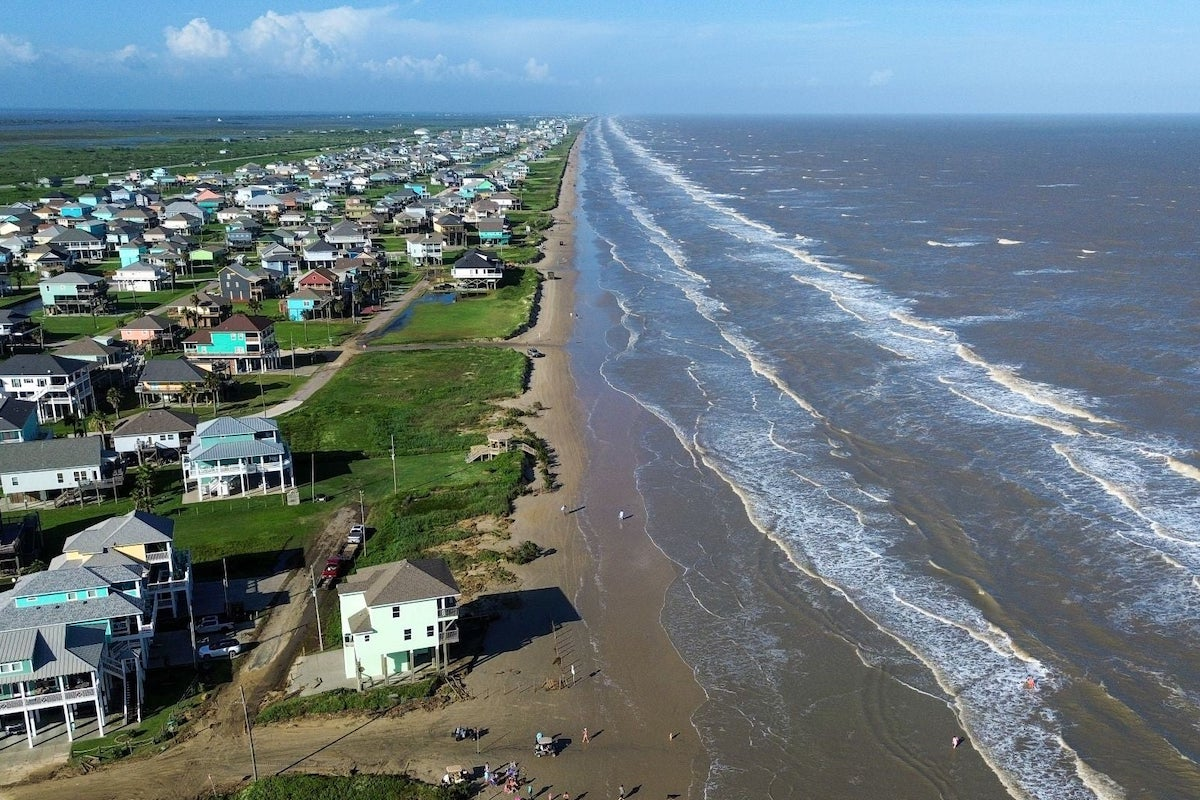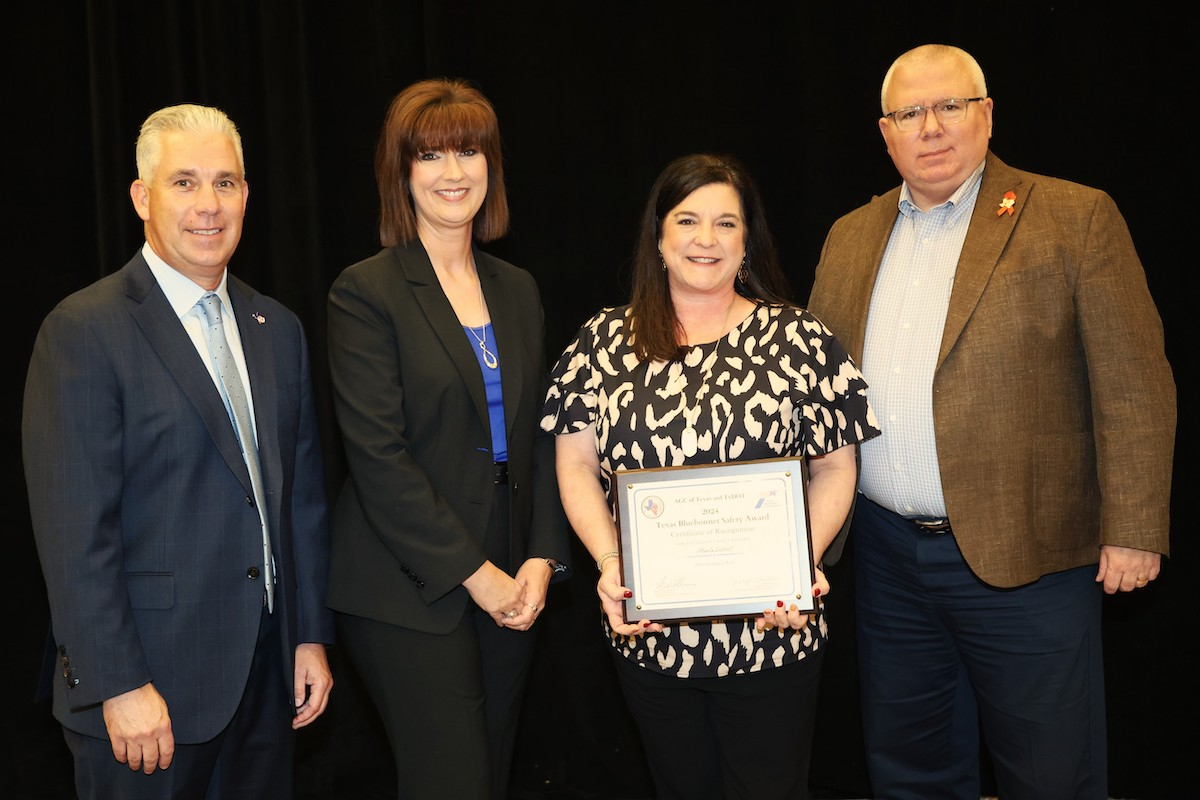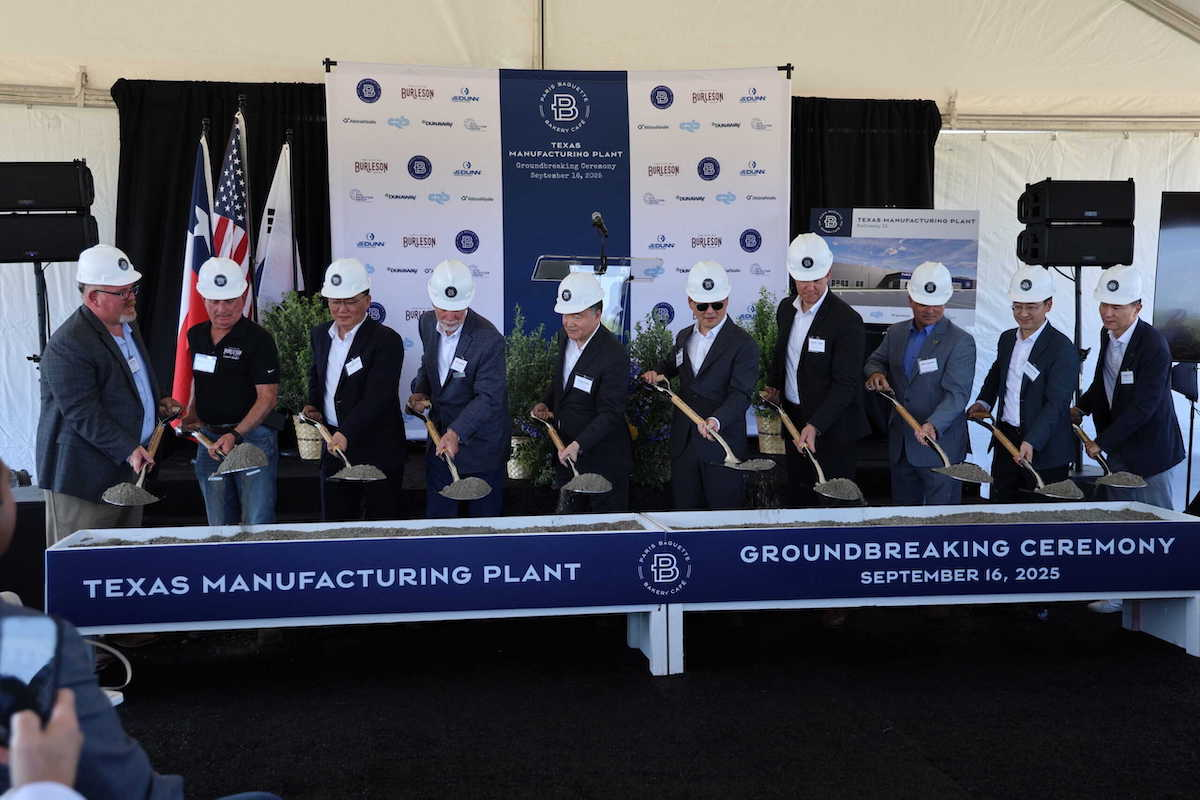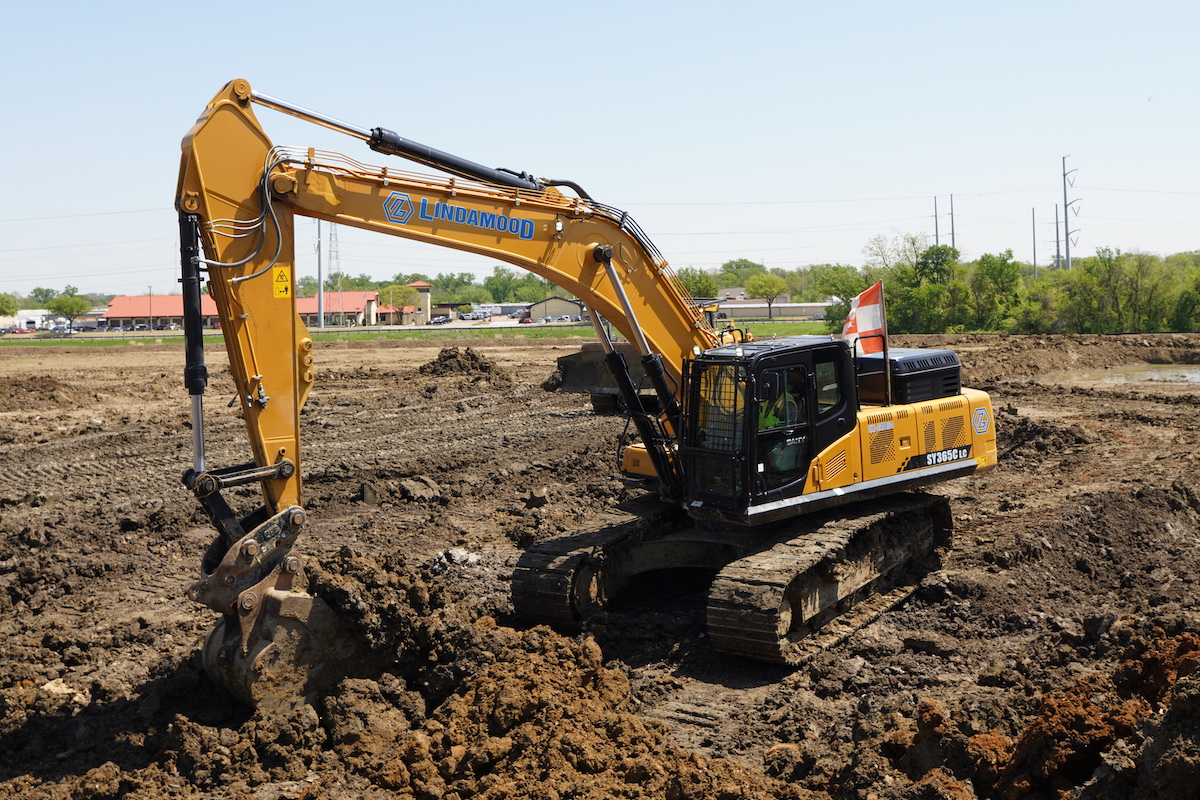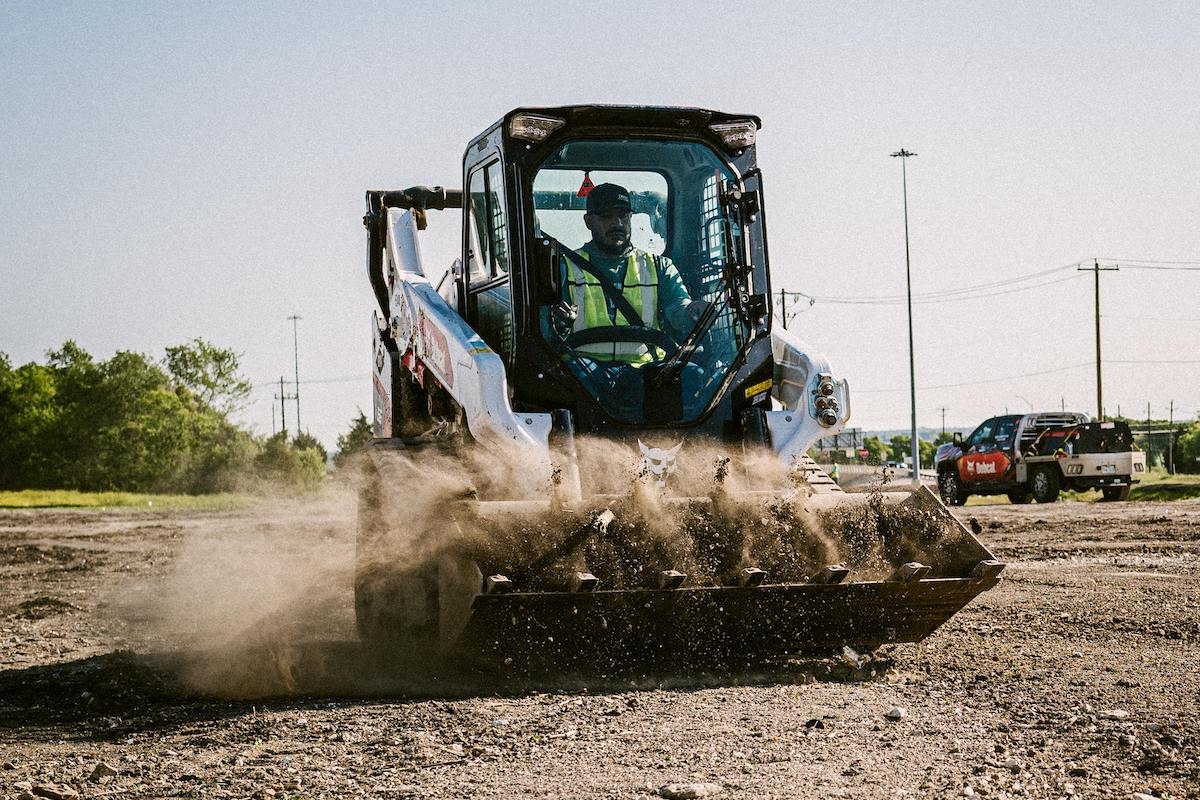Aging bridges were the impetus for beginning this project. The project scope includes the replacement of nine bridges and the rehabilitation of six others. “These bridges were built in 1959 and 1960, and they have reached the end of their service lives,” said Nick Schirripa, a Media Representative for MDOT.
Along the 15-mile-long project area, the team is also replacing or reconstructing over 10 miles of I-94. This section of highway has not had significant construction in nearly 20 years. With the team already in the area, MDOT determined that prioritizing preventive maintenance would be wise. “Combining the bridge and roadway work will minimize the need for future travel impact on this section of roadway,” Schirripa said.
Because of the wide scope of work, the team divided the project corridor into eight different work zones. “Breaking the project into multiple pieces has helped us with organization and coordination,” said Derrick Arens, a Project Manager with Anlaan Corporation. Arens added that all sections were not active simultaneously.
The state insisted that two lanes of I-94 remain open in each direction during construction. “A challenge on the project has been coming up with a design that can maintain two lanes of I-94 traffic in each direction [four lanes total] while replacing mainline I-94 bridges,” said Elias Motz, a Project Manager with C.A. Hull.

| Your local Bomag Americas dealer |
|---|
| WPI |
To keep traffic flowing, the team used a variety of maintenance of traffic concepts on the project, including temporary widening, crossovers, and temporary bridges.
“With how narrow I-94 is near the Kalamazoo River, the bid documents required that a temporary bridge be utilized in the median of I-94, to maintain I-94 traffic while the bridges over the Kalamazoo River were replaced,” Motz said. This concept was implemented at all mainline bridge replacement areas. Four temporary bridges were constructed at different locations.
“Utilizing pre-engineered temporary bridges required complex earth retention to be designed with temporary foundations to support the temporary bridges,” Motz said. “This concept ultimately allowed for I-94 bridges to be replaced full width rather than part width, which improves production and quality of the new structures.”
Arens noted that Anlaan has worked with temporary bridges in the past. However, the previous makeshift bridges were not at the scale of the ones used on the I-94 project. “The other temporary bridges we used were makeshift, but those used on this project were more significant,” he said. Vehicles up to 164,000 pounds could safely use the temporary bridges.
The Capital Avenue Bridge over I-94 in Battle Creek was one of the bridges the team replaced. The original plan was to keep half of the five-lane bridge open at all times to allow for continual traffic flow. However, Arens explained that the team discovered this could not be done due to safety concerns and the bridge type.
The joint venture and MDOT agreed on an alternative way to proceed. The ambitious new plan required the team to replace the 255-foot-long Capital Avenue Bridge in 75 days rather than the original six-month build. This meant the bridge would be closed, and commuters would need to detour. MDOT got approval from the public for the plan, so it proceeded.
“We had to work at a fast pace to get the bridge completed and throughout the first year of the project when we had five locations going at once,” Arens said. “Our field team stepped up and worked very hard to make it happen.”
The team also worked at night since there were restrictions about when they could close I-94 during the day. Significant work, such as bridge demos, was done at night and on weekends when they could close traffic in both directions.
Another challenge was installing structural steel girders over the Kalamazoo River. The 8.5-foot-tall bridge beams were over 240 feet long and weighed over 250,000 pounds each, fully assembled. The beams were shipped to the site in pieces and then partially assembled on the ground. The team then erected them and spliced them together while over the river.
While the joint venture of C.A. Hull and Anlaan Corporation was selected based on their low bid, MDOT was confident they could handle the large undertaking. “The joint venture increased the resources available to expedite the project,” Schirripa said.
Another benefit is that C.A. Hull and Anlaan have worked together in the past, and the duo has worked with MDOT previously as well. “With both contractors having experience in design build projects, working together, and being prime contractors on several projects, this allowed for a strong team of contractors to pursue the project and take advantage of our collective experience to develop the best approach to the project,” Motz said.
Arens raved about the teamwork that is displayed on the project. “Everyone makes themselves available to solve problems, as they appreciate the urgency of the project,” he said. “You don’t call someone, and they say, ‘It’s not my problem.’ The response is ‘I can help,’ and they get back to you ASAP.”
Anlaan was also drawn to the project due to its size and location, as they have many team members in the area. C.A. Hull said the project was in their wheelhouse because of the substantial amount of bridge work.
In fact, the project could have finished early. However, coordination with other projects in the area is preventing the project from completing early.
The $160 million project is expected to be on budget and may even come in under budget. “The project currently is under budget as a result of eliminating preventive maintenance work on two bridges and approximately 4 miles of roadway resurfacing,” Schirripa said.
Funding for the project has come from a variety of sources. Approximately 75 percent is from the Infrastructure Investment and Jobs Act, 15 percent is federal funding, and 10 percent is state funding.
When the I-94 project in Calhoun County is completed, travelers will be driving on safe bridges that meet the current standards, as well as multiple new modern bridges. The scope included the roadwork as preventive maintenance, but it will also improve travel and avoid future inconvenience.
- Owner: Michigan Department of Transportation; Greg Finnila, Project Engineer, MDOT
- General Contractors: C.A. Hull, Commerce Charter Township, Michigan; Anlaan Corporation, Grand Haven, Michigan
- Designers: Fishbeck, Grand Rapids, Michigan; AECOM, Dallas, Texas
- Other Key Contractors: Hoffman Bros. Inc., Battle Creek, Michigan; Michigan Paving and Materials Company, Canton, Michigan; J Ranck Electric, Inc., Mt. Pleasant, Michigan



























